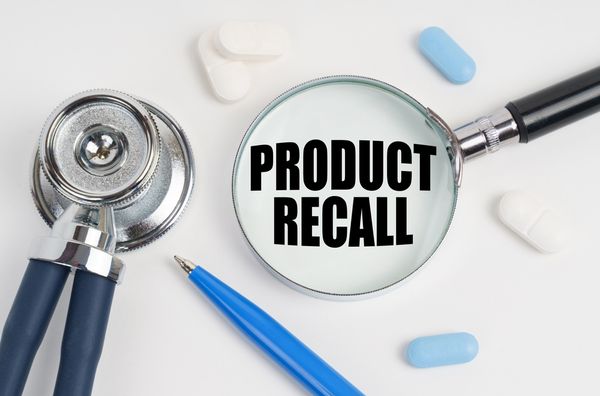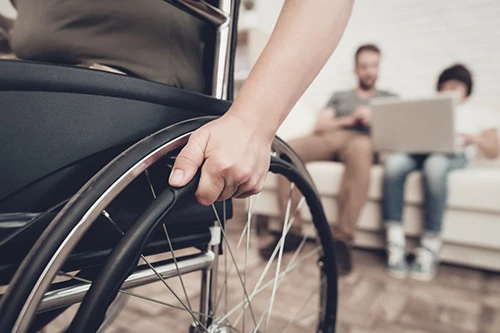When a product does not work the way it is intended to, it can result in substantial health and safety concerns. If you have been a victim of a defective product, it is important to understand your rights and legal options.
At Steinberg Law, we are committed to helping people like you in Palm Beach Gardens and surrounding areas. We are a leading law firm and the years we have been in this field show it. Thanks to our seasoned personal injury lawyers, it will be easier to recognize your legal needs and what you should do. Whether it is the designer, manufacturer, wholesaler or retailer, or any other party, we are here to help you get the compensation you deserve.
Call our product liability attorney in Palm Beach Gardens at 877-783-4611 to learn more!
What is Product Liability?
In Florida, product liability refers to a field of law that holds companies that design, manufacture, and supply goods liable in the event the consumer falls ill, sustains an injury, or incurs losses while using the product. Under the product liability statute, these parties include designers, manufacturers, suppliers, distributors, wholesalers, and retailers.
In the state of Florida, product liability lawsuits are usually made under the elements of negligence, strict liability, and breach of warranty.
What are the Primary Reasons for Legal Action?
Common causes for legal action regarding faulty goods include:
Design Defects
Before an item is manufactured, it is first designed. The item is expected to work in accordance with the standards put in place in the design stage. This means that a design flaw claim doesn’t fault the manufacturing process. That’s because the item may have been manufactured according to the design specs, but the design had an issue. This makes the product unreasonably dangerous to the consumer.
In order for a product to be considered unreasonably dangerous, the risks in the design are expected to overshadow the advantages. That’s why the court assesses safer design decisions that could have been made and achieve the same results.
Manufacturing Defects
These issues happen during the assembly stage. Here, the design was in accordance with the standards, but errors were made during the manufacturing stage, making the product unsafe for use. The law requires every manufacturer to have a Quality Control unit tasked with uncovering any issues. Examples include missing parts, weaknesses, and contamination.
These kinds of flaws do not usually affect the whole product line as most manufacturers have stringent quality control oversight guidelines and regulations. In rare situations, however, a defective product may slip through the cracks and make it to the consumer.
When a faulty product is sold and causes the end user to sustain an injury or fall ill, the manufacturer is held liable and it does not matter whether the right procedures were implemented in order to avoid faults.
Marketing & Labelling Defects
Some products like knives come with obvious risks. However, this is not always the case and the end-user may not be aware of the potential dangers of a product. This makes the manufacturer or seller responsible for providing this information.
Pharmaceuticals come with a label stating the potential side effects and electronic devices include a caution sticker. For a product liability claim to be considered valid, the illness, injury, or property damage should have been a result of the failure to warn the consumer properly.
Marketing is another area that can result in product liability when not done properly. If a product is marketed to work in a way that it doesn’t the end-user can file a product liability lawsuit against the party responsible.
How Is Defective Product Liability in Florida Determined?
For your claim to be viable, it needs to have the following four grounds:
Strict Liability
Under this element, you can seek compensation from the defendant if you can demonstrate that the product was faulty and ended up hurting you. This applies even if the defendant followed the set standard to ascertain the product was safe to use. Given the product was defective or unreasonably dangerous, you are allowed to file a claim under strict liability.
Negligence
This ground focuses on the actions or inactions of the liable party. If your case is based on negligence, then any party in the commerce chain can be held liable for damages. However, you must prove that their careless or negligent acts resulted in a defective or unreasonably dangerous product.
Any individual or entity in the supply chain can be held responsible for not practicing reasonable care. This is different from strict liability where the defendant can be held responsible even if they were not careless or negligent.
In order for a defendant to be held liable for your losses or injuries based on negligence in Florida, you need to show that:
- They owed you a duty of care
- They breached the duty of care
- You incurred recoverable damages from the use of the product
- The defendant’s acts or inactions were the direct cause of injuries and losses.
Failure to Warn
When a product does not provide clear warnings about the risks or dangers associated with its use, the situation is considered a failure to warn. Most products are required to have warning labels and an owner’s manual explaining how to use them in a safe manner and warning about the risks and dangers.
The instructions and warnings are also required to be clear and concise so that the average consumer can understand things that may not be immediately apparent.
Breach of Warranty
Each product comes with a warranty. Usually, you are protected by the following types:
Express Warranty- refers to any representation in regards to the product and its safety made by the manufacturer or retailer
Implied Warranty- entails the implied promise made by the manufacturer that the product won’t cause harm if used as instructed or intended.
If you use a product and it turns out to be defective, you can file a lawsuit based on the breach of warranty.
Who Can be Held Responsible for Your Damages?
As mentioned earlier, any party in the commerce chain can be held responsible for the injuries and damages incurred. The common ones include:
Manufacturer
The first link of a product’s distribution is the manufacturer. They are responsible for making the products you use on a daily basis or their components. Almost every company nowadays depends on 3rd parties for manufacturing, making it hard to pin down the entity responsible for a faulty product.
When making a claim, you may need to sue multiple companies, depending on how the item was designed and manufactured. For example, if a baby stroller wheels fall off and break, you may be forced to sue both the wheel and stroller manufacturers.
Wholesaler
Wholesalers, suppliers, and distributors are the link between the manufacturer and retailer. Given they are part of the commerce chain, they can be held liable for a faulty product.
Retailer
While the store you purchased the product didn’t manufacture or design the item, they can also be held responsible for the fact that they sold it to you. Bear in mind that it is not an issue of picking one party over the rest, no matter the protest from the retailer who sold you the defective product. Any party in the supply chain can be held responsible under product liability law in Florida.
When determining if you should sue the retailer, keep the following in mind:
- You do not have to be the initial buyer to make a claim
- You do not have to be user to make a claim
- If you bought a used item and it turns out to be faulty, causing injury or damage as a result, you can still make a product liability claim.
Practitioners
Doctors and other medical professionals who prescribe or recommend a medical product or drug can be sued for failure to warn or provide sufficient and clear instructions about the use of a product.
Hospital or Clinic
Hospitals, clinics, and other facilities involved in the commerce chain for medical products can also be sued for the injuries and illnesses sustained by the end user.
Get a Product Liability Attorney in Palm Beach Gardens Today!
In the past several years, there has been an increase in unreasonably dangerous and faulty consumer products. According to the Consumer Product Safety Commission (CPSC), defective consumer products lead to around 22,000 deaths and 30 million injuries per year in the United States. This is especially the case in the medical and pharmaceutical fields.
While there is a comprehensive product liability law in place, making a claim is not always easy, mostly because it is hard to determine the party at fault. One product passes through multiple companies and distributors, making the process of proving liability difficult. This is why you need ideal legal representation.
The team at Steinberg Law has vast experience in this field and will work aggressively to fight for your rights as a consumer. We operate on a contingency basis and so, you do not have to worry about legal fees. Call us today at 877-783-4611 for a free initial consultation.





